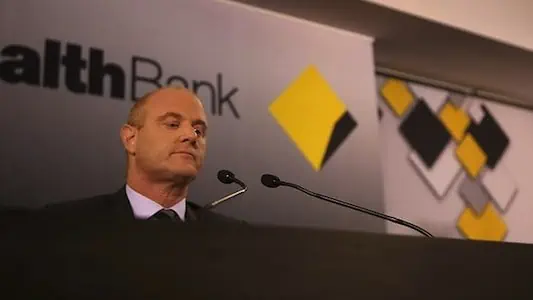On 3 July 2014, Ian Narev, the Chief Executive Officer for Commonwealth Bank, addressed a press conference to respond to the Senate Inquiry’s report on CBA financial planning scandal. The scathing report was issued on 26 June 2014 after months of investigation and relentless coverage so the fact that it took a week for CBA to respond is, in itself, telling.
Click here to access the Senate report. And for a high level review of the more interesting aspects, read “Wading in the shallows: Advice, ASIC and Accountability”.
Mr Narev provided a superficial and perhaps unconvincing response to the report and at the heart of the CBA’s considered response was his proposal to commence a CBA-run review of all financial advice provided by CFP and Financial Wisdom over a 10-year period.
The public and media response to this proposal has been other than what Mr Narev might have anticipated. Industry insiders and affected clients remain skeptical of CBAs ability to properly review their own advice.
And for good reason.
This is one of those cases where the deeper one digs the more strategic errors and management missteps are identified. By the way in which they responded, the bank damaged their reputation and squandered the trust of those Australians affected by the scandal.
Personally, I didn’t feel like Mr Narev’s apology was sincere. He certainly didn’t provide an unqualified statement of contrition or responsibility and seemed to trivialise the profound personal impact the advice failures have had on the affected people. I didn’t buy his apology and I have real concerns the CBA should not review and remediate the affected clients for the following reasons:
1. Mr Narev said the payout will not be material to investors. As accurate as this might be in the context of CBA’s 2013 profit of $7.6 billion, it demonstrates a lack of empathy for the plight of the affected clients. I think this demonstrates that CBA cares more about what their shareholders think than the people who have been hurt by this scandal. More concerning: if share price impact is the key metric for determining harm, what does that mean for consumers and society more generally?
While the amount may not affect the share price (frankly, I think he is underestimating the issue), without admitting that the potential payout is still an important amount of money to the CBA, Mr Narev showed that he doesn’t appreciate the fact that badly affected clients will want the CBA to hurt.
Mr Narev was quick to dismiss the question about the impact of a payout on the banks bottom line. But, if the compensation required is so immaterial, then why did CBA offer people so little in compensation before now? This position reinforces the view that this is not a genuine admission of bad conduct but a PR ploy designed to divert attention from FOFA amendments.
2. No-one allegedly involved in doctoring files, forging signatures or unauthorised transactions at CBA has been charged or referred to police. More people than just the ‘rogue planners’ were involved in these breaches of trust and law and the report suggests management complicity rather than simple ignorance. But we don’t know who these people are, nor do we know whether people who were involved in these acts are still working at the bank or continuing to provide financial services elsewhere.
3. In my opinion, the CBA’s delay was not a strategic misstep, but a considered response. CBA do not think the failures warrant much attention and responded accordingly. In fact, one might suggest that Mr Narev delayed saying anything until he was virtually pushed into a press conference by his counterparts at other banks. CBA needed to act to take the focus off all the banks (at a time when they are trying to roll back financial reforms that impact their profits).
4. Mr Narev made no mention of the distress caused to people by the long delays dealing with complaints and CBA’s refusal to properly compensate clients for losses. In fact, he even suggested that people simply felt that they were not heard due to the banks size.
5. Mr Narev is already limiting the scope for compensation to losses a client has experienced because they were in a more aggressive portfolio than they authorised. But investigation for previous client complaints found that documents in some client files have been doctored and forged.
There are potentially 400,000 clients who have received advice during the years covered by the CBA review. Mr Narev can’t possibly understand the full extent of issues until that review has been completed.
6. It seems everyone who has spoken publicly for the CBA on the scandal, including those that attended the Senate inquiry, have shown a critical lack of understanding of Commonwealth Financial Planning’s advice business. Their critical lack of empathy and basic humanity is equally worrying but this, at least, was called out by Senator Bishop. Due to this lack of understanding, I don’t think the CBA can be trusted to pick the right people to review the advice.
7. Mr Narev keeps blaming the financial planners as being the root cause of the issues at CBA. In his press conference, he said “They failed in their primary obligation — to act in the best interests of our customers.” I’d argue that Mr Narev has done far worse in failing in his responsibility to quickly and properly compensate clients badly affected by these planners – or acknowledge his role in creating (and maintaining) the culture, structures and incentives that created these problems.
8. The CBA review is limited to those clients who know to come forward with a complaint. But, many people won’t realise they have received inappropriate advice and so wont come forward. Some won’t hear about the review at all.
If CBA has identified systemic issues, it’s possible to identify other clients who have potentially received bad advice. eg review all advice given by a ‘rogue’ adviser. Rather than focus on making things right, CBA is still focused on limiting their payout. Mr Narev acknowledges that he is “ultimately responsible” but this is a long way from “I am responsible because this happened on my watch”.
9. CBA is actively trying to repeal financial services reforms brought into law last year – or to minimise their application. One might suggest that the CBA’s decision to make their announcement after the introduction of the amending regulations was also deliberate.
10. Mr Narev said “It’s never too late to do the right thing.” I think that the partners of those elderly clients who died without proper compensation would feel otherwise. And, I think this comment demonstrates that Mr Narev thinks it’s more of an issue for the big end of town, rather than acknowledging that average Australians have been badly affected. And for many of those, it’s too late.
11. And finally, here is the ad CBA put in major newspapers. It lacks any context or reference to the systemic issues, such as fraud and inappropriate advice. Clients of Commonwealth Financial Planning and Financial Wisdom are unlikely to recognise they might have been affected. I don’t think this ad will make sense to most people – the heading and title is vague (to anyone other than those in the industry who know the program’s name). And the ad does nothing to warn people there may be more to the poor performance of their portfolios than the GFC.
Update April 2015:
12. CBA are funding a defamation case brought about by one of it’s executives against a consumer advocate. Regardless of the legal basis (and the fact that CBA say they fund such cases where an employee has been allegedly defamed while carrying out their obligations for the bank) this move will be seen more as an act of revenge. It certainly doesn’t suggest ongoing repentance by CBA for it’s role in the financial planning scandal that gave birth to such criticism.
If you (or anyone you know) received bad advice from CBA and think you have grounds for a complaint, check out how to review your own bank advice and see if you have a reason for a claim.
Or contact me for help.

